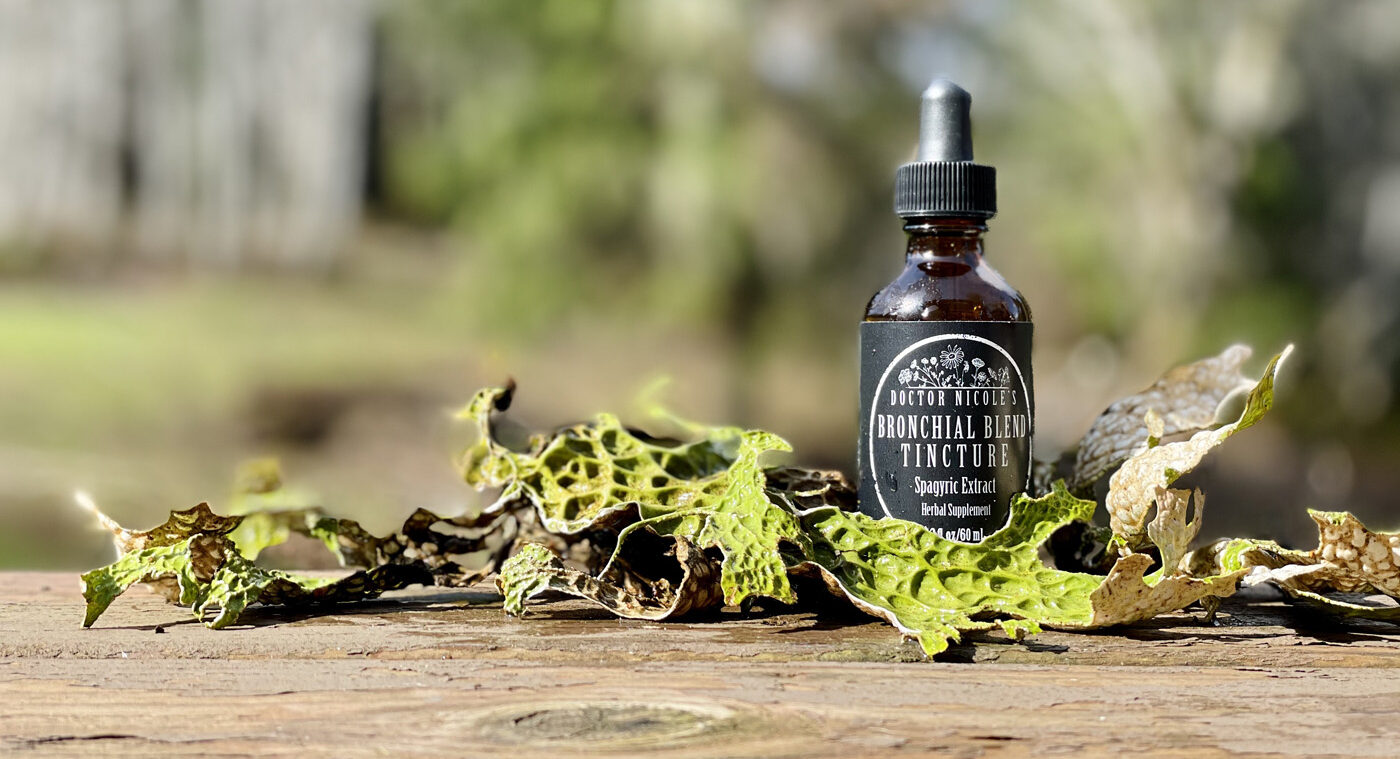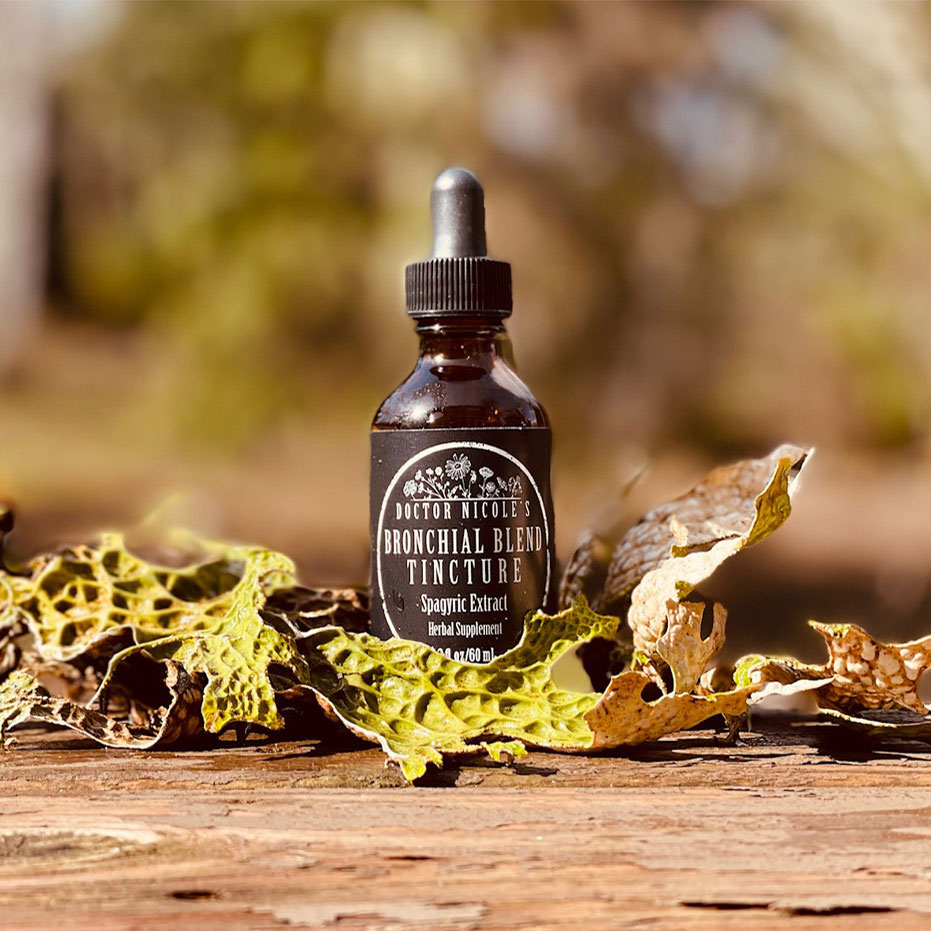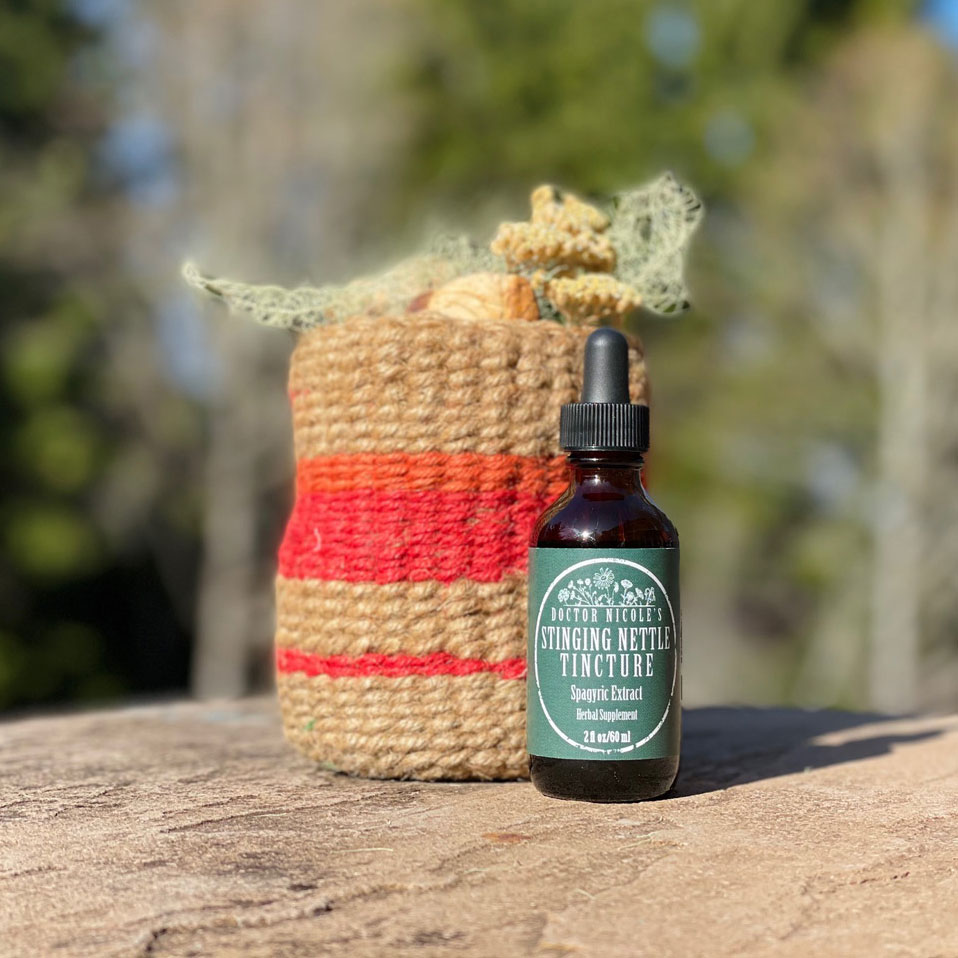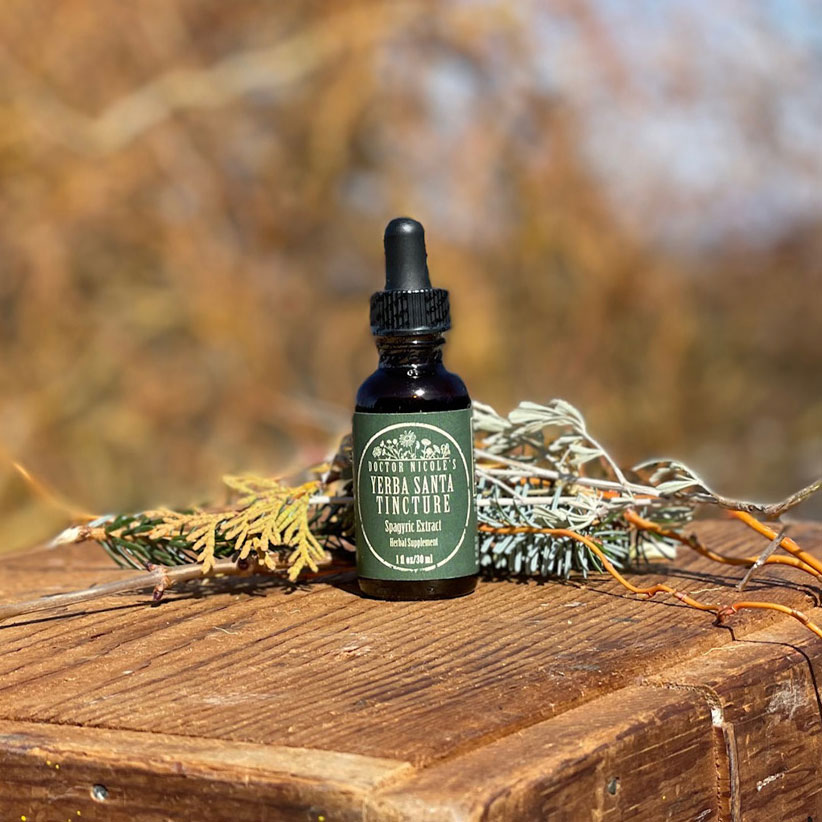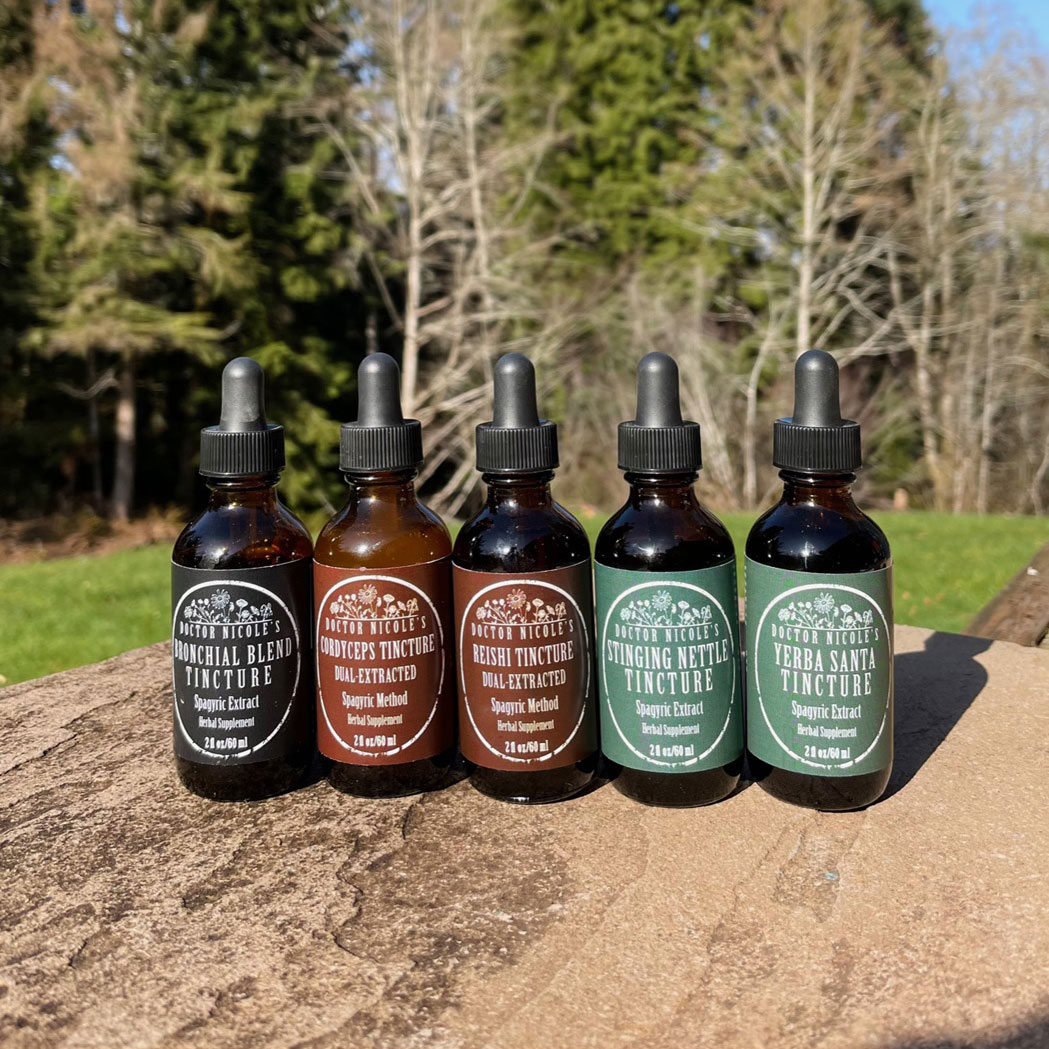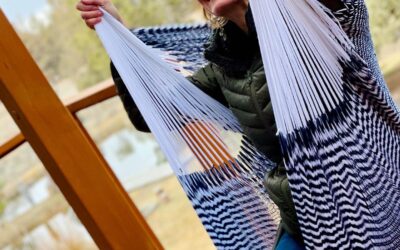Addressing Unpleasant Hay Fever Symptoms
If you find yourself suffering from seasonal allergies, take heart! There are several steps you can take to help minimize the disagreeable symptoms of congestion, sneezing, and itchy eyes. This is also the season where fatigue and irritability can get the better of you. Dietary choices play a large role in controlling hay fever. Likewise, herbal remedies are exceptionally effective in helping you to feel better quickly. Let’s have a look at both.
The Best Diet to Eat During Allergy Season
What you eat can make (or break) your management of allergy symptoms. A healthy gut should be a top priority to help alleviate fatigue and inflammation. It is important to focus on probiotic-rich foods such as:
- Kefir
- Natto
- Sauerkraut
- Kimchi
Prebiotic foods and resistant starches are also helpful for gut health. For prebiotics, think: dandelion, flaxseed, oats, Jerusalem artichoke, raw garlic, and turkey tail mushroom — I carry a potent, dual-extracted turkey tail tincture in my apothecary.
Cooked then cooled potatoes, cashews, and raw oats are good sources of resistant starch. You can read about other helpful foods here. My Balanced Gut Tincture is also a convenient way to promote gut health.
Ginger can help alleviate the inflammation associated with itchy eyes and throat and swelling of the nasal passages. One animal study found that ginger was helpful in suppressing pro-inflammatory compounds, which in turn lead to a reduction of allergy symptoms.1
Possessing anti-inflammatory, anti fungal, and antimicrobial properties, studies have shown that bee pollen helps to lower the activation of mast cells, thereby reducing allergy symptoms.2 If you decide to give bee pollen a try, make sure to only use local varieties for the most beneficial effect.
Allergy season is the best time to add a bit of heat to your life with spicy-hot foods. Since these foods thin mucus and expel it, they can be helpful in clearing head and lung congestion. Spicy-hot foods also reduce inflammation. Cayenne and other hot peppers, garlic, onion, ginger, and cinnamon are all good choices. As an additional benefit, onions contain quercetin — a natural antihistamine that calms the symptoms of hay fever.3
Rich in the enzyme bromelain, pineapple is outstanding for minimizing hay fever symptoms. It is known to help reduce the swelling and irritation of the nose and sinuses.
Herbal Support for Calming Hay Fever
Stinging Nettle
Interested in giving nettle a try? An easy-to-use tincture is available in the apothecary!
One of the best herbs you can use for taming uncomfortable hay fever symptoms, stinging nettle should be in every springtime medical kit. As you can see in the excerpt below from my post “Stinging Nettle: A Power-Packed Wild Green for Allergies, Arthritis, Inflammation, and More!”, this is one herb you absolutely want on hand for the allergy season:
“Famously regarded as an outstanding natural treatment for seasonal allergies, nettle extract has been shown to reduce the inflammation that sparks hay fever symptoms. Part of this mechanism involves blocking histamine receptors and hindering the release of compounds that trigger allergy reactions. One double-blind study found that 57% of the participants reported that their seasonal allergies were significantly reduced with the use of nettle.”
Yerba Santa
Another exceptional herb for hay fever season, yerba santa contains compounds that help to loosen mucus in the chest due to allergies. It is also helpful for asthma, sinus issues, and respiratory infections. You can find my potent yerba santa tincture here.
Lungwort Lichen and Mullein
If you are suffering from significant lung congestion and need a remedy to ease your symptoms, lungwort lichen and mullein are two of my top recommendations. These powerful herbs clear the lungs of congestion, alleviate tightness of breathing, and promote the expulsion of phlegm. Lungwort lichen and mullein are helpful for asthma, COPD, colds, influenza, and bronchitis as well. Both are included in my powerful Bronchial Blend Tincture.
Want all of these tinctures in one easy-to-order bundle? Try our Allergy & Asthma Support Bundle today!
Visit the apothecary today to learn more!
Nicole Apelian
Nicole’s Apothecary Products in this Post
References
- Kawamoto, Y., Ueno, Y., Nakahashi, E., Obayashi, M., Sugihara, K., Qiao, S., Iida, M., Kumasaka, M. Y., Yajima, I., Goto, Y., Ohgami, N., Kato, M., & Takeda, K. (2016). Prevention of allergic rhinitis by ginger and the molecular basis of immunosuppression by 6-gingerol through T cell inactivation. The Journal of nutritional biochemistry, 27, 112–122. https://doi.org/10.1016/j.jnutbio.2015.08.025. https://pubmed.ncbi.nlm.nih.gov/26403321/
- Ishikawa, Y., Tokura, T., Nakano, N., Hara, M., Niyonsaba, F., Ushio, H., Yamamoto, Y., Tadokoro, T., Okumura, K., & Ogawa, H. (2008). Inhibitory effect of honeybee-collected pollen on mast cell degranulation in vivo and in vitro. Journal of medicinal food, 11(1), 14–20. https://doi.org/10.1089/jmf.2006.163. https://pubmed.ncbi.nlm.nih.gov/18361733/
- Mlcek, J., Jurikova, T., Skrovankova, S., & Sochor, J. (2016). Quercetin and Its Anti-Allergic Immune Response. Molecules (Basel, Switzerland), 21(5), 623. https://doi.org/10.3390/molecules21050623. https://pubmed.ncbi.nlm.nih.gov/27187333/


